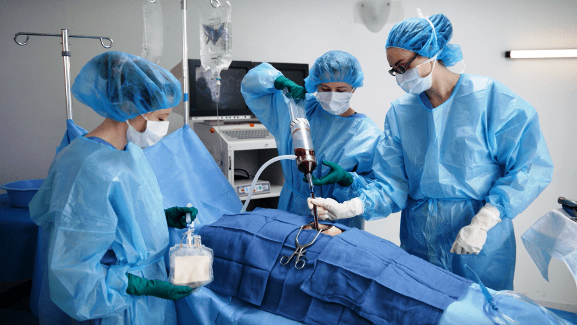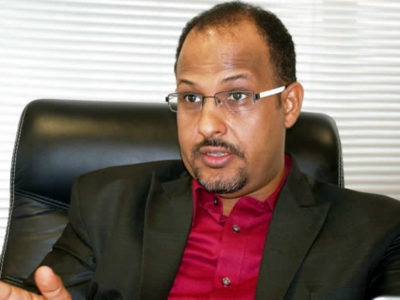Hemafuse, a surgical autotransfusion device, will
revolutionize blood access across Africa. Hemafuse is designed to salvage and
recycle whole blood from cases of internal bleeding. The device can be used in
both emergencies and scheduled procedures to recover blood from where it pools
inside of a patient, into a blood bag, where it is immediately available to be
re-transfused back to that same patient.
Hemafuse is now available in Ghana and Kenya. There
are already plans to get it into larger markets in Nigeria and South Africa. Using
Hemafuse to recycle a patient’s own blood saves the donor blood that is
available for other patients who are not candidates for autotransfusion.
Hemafuse was created for patients suffering from
internal bleeding resulting from trauma, ruptured ectopic pregnancies, or for
use in planned surgeries. Hemafuse can be used in cases where there is no donor
blood available, and even as the preferred option over donor blood. When
compared to autotransfusion, the use of donor blood comes with a higher risk of
disease transfer, increased length of stay, readmissions, and other
complications.
Hemafuse is now used in 10 different hospitals
across Kenya. Last month, Hemafuse received an endorsement from The First Lady,
Margaret Kenyatta at the launch of the Nairobi Beyond Zero Medical Safari held
at Uhuru Park Nairobi on January, 25 2020. The First Lady’s Beyond Zero Kenya
initiative donated Hemafuse to Mama Lucy Kibaki Hospital to aid in the
reduction of maternal deaths.
During the event, Dr. Elizabeth Wala, Programme
Director for Health Systems Strengthening at Amref Health Africa in Kenya,
spoke about the importance of using a high-quality device to save lives. She
announced that the Kenya Pharmacy and Poison Board have approved Hemafuse.
“Blood is a matter of life and death, the impact of this device is saving lives
that could have been lost due to lack of blood. Achieving [Universal Health
Coverage] requires innovations for essential medicines and health technologies
that save lives. Hemafuse should be part of the essential medical devices in
each hospital,” she added.
Use of the device is now being rolled out in
Ghana, where it has already been used to save lives in cases of ruptured
ectopic pregnancy. Dr. Gerald Osei-Owusu, a Medical Officer at Tema General,
has used Hemafuse in several different surgeries. After experiencing Hemafuse
first hand, he says the device cuts down on cost, the time it takes to save the
patient, and reduces their recovery time. “It’s a good device, I think it’s
something we should use nationally and continentally… It makes life easier,
work easier, and costs less. I think it’s a good device.”
Dr. Rafia Abanga, another Medical Officer at
Tema General has experienced Hemafuse first hand, “The Hemafuse is a great
device, I’ve used it only twice, it was much needed and helped save a young
lady’s life. I am grateful to the person who invented this,” she added.
Autotransfusion reduces the risk of infection
and disease transmission because using a patient’s own blood is safer than
someone else’s. Dorothy Kesewah Denkyi, a theatre nurse at Tema General,
explains her experience using Hemafuse and implementing autotransfusion.
“Autotransfusion is the best…It’s better than giving someone [else’s] blood
to the patient. So we are encouraging autotransfusion if that is what will help
out. Now that Hemafuse is here [in Ghana], we are advocating to get more in the
system. Every theatre should have one, if not one, two.”
Hemafuse is now
available at hospitals in Kenya and Ghana, and will be coming to hospitals
across Africa. In Kenya, Hemafuse is sold through Surgipharm and in partnership
with Amref. All other locations should reach out to Sisu’s global partner, VIA
Global Health:
www.viaglobalhealth.com/product/hemafuse.






























